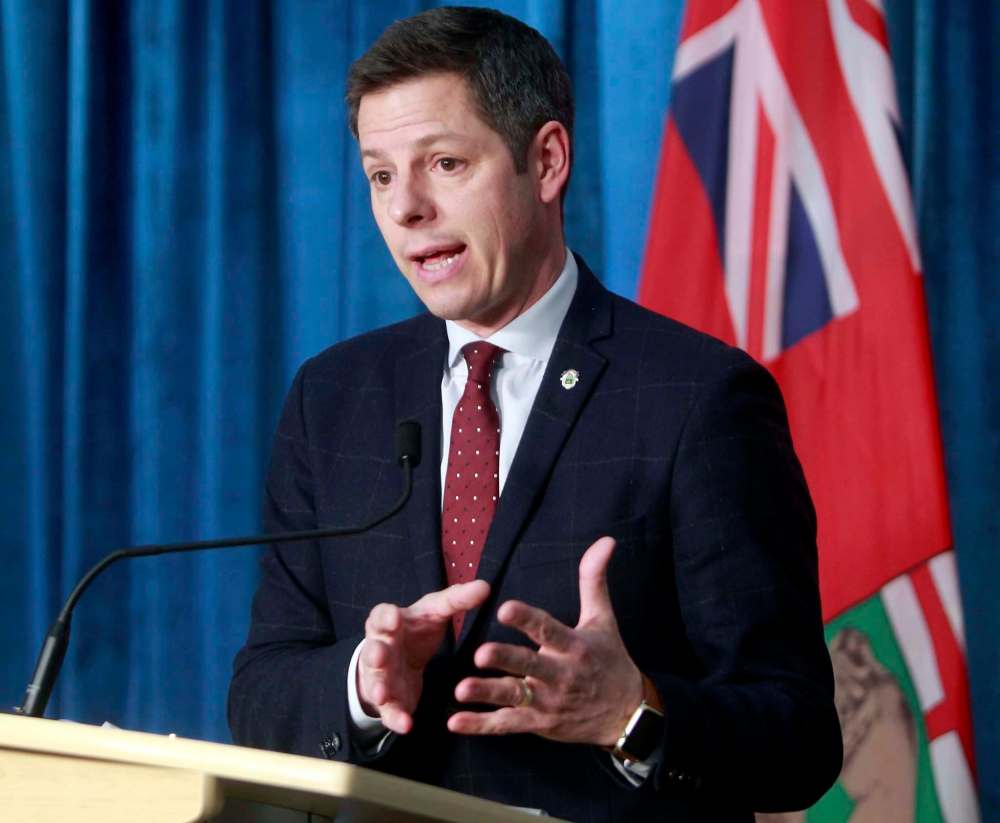Cooling-off talk raises bigger questions
Advertisement
Read this article for free:
or
Already have an account? Log in here »
To continue reading, please subscribe:
Monthly Digital Subscription
$0 for the first 4 weeks*
- Enjoy unlimited reading on winnipegfreepress.com
- Read the E-Edition, our digital replica newspaper
- Access News Break, our award-winning app
- Play interactive puzzles
*No charge for 4 weeks then price increases to the regular rate of $19.00 plus GST every four weeks. Offer available to new and qualified returning subscribers only. Cancel any time.
Monthly Digital Subscription
$4.75/week*
- Enjoy unlimited reading on winnipegfreepress.com
- Read the E-Edition, our digital replica newspaper
- Access News Break, our award-winning app
- Play interactive puzzles
*Billed as $19 plus GST every four weeks. Cancel any time.
To continue reading, please subscribe:
Add Free Press access to your Brandon Sun subscription for only an additional
$1 for the first 4 weeks*
*Your next subscription payment will increase by $1.00 and you will be charged $16.99 plus GST for four weeks. After four weeks, your payment will increase to $23.99 plus GST every four weeks.
Read unlimited articles for free today:
or
Already have an account? Log in here »
Hey there, time traveller!
This article was published 07/02/2018 (2853 days ago), so information in it may no longer be current.
Mayor Brian Bowman raises an interesting question.
It isn’t the only question he should be asking.
The mayor mused aloud last week about a “cooling off” period for civil servants who leave the city’s employ — in effect, a rule preventing those departed staffers from having business contact with the city for a predetermined period of time.

A similar measure was proposed for elected officials last fall, when Mr. Bowman introduced a motion calling for a one-year pause for mayors and councillors, restricting them from certain job-related contact or lobbying. The motion is under review.
In light of the departures of several senior city managers, some of whom have subsequently found employment with companies that do business with the city, the mayor was asked whether the cooling-off concept should be expanded to include erstwhile bureaucrats, as well.
“I’m certainly open to ideas and discussion,” Mr. Bowman said. “It isn’t what we’re considering at this stage, but if my council colleagues feel otherwise, I’m going to be open to that.”
It is a discussion worth pursuing. Despite the current chief administrative officer’s offhand dismissal of any concerns about conflict, reasonable questions arise when the city’s former solid-waste manager leaves his position and resurfaces as a manager at a company that landed a lucrative garbage-removal contract — a contract which, in his previous civil-service role, he helped to negotiate.
Other departed city managers have also landed jobs related to their previous city employment; the potential certainly exists for these former civic administrators to capitalize on their knowledge of the city’s inner workings if their new employers do business with city hall.
But while Mr. Bowman and his council colleagues debate the pros and cons of a cooling-off period for civil servants, they would be well advised to introduce another question into the discussion: why have so many senior managers decided in recent years that the city is not where they want to work?
As much as a cooling-off period might protect the city from having its own intellectual property used against it in future business dealings, a larger danger the city faces is the loss of decades of experienced leadership, public-service commitment and invaluable institutional memory that are no longer available to an administrative structure that needs those attributes now more than ever.
The reasons for the mass exodus of experienced civil servants during the past decade are varied and complex. Years of politically motivated tax freezes and accompanying budget cuts left the civic workforce understaffed and overburdened.
During a previous civic administration and mayoral tenure, a fast-and-loose approach to deal-making prompted some city managers to reconsider their situations as corners were cut and rules were either bent or broken. Some bureaucrats sacrificed their careers to preserve their personal values; others became casualties of having gone along with ethically questionable decisions.
More recently, the city’s elected officials and top administrators seem to have developed a fondness for throwing civil servants under the bus when mistakes are made or accountability is called into question. It’s hardly surprising to see familiar faces returning to city hall in the employ of companies seeking to do business with Winnipeg; their expertise is as much an asset in the private sector as it was in the public sphere.
By all means, discuss the need for a cooling-off period. But while you’re at it, think hard about why so many civil servants are available for jobs that might require such a time out.



